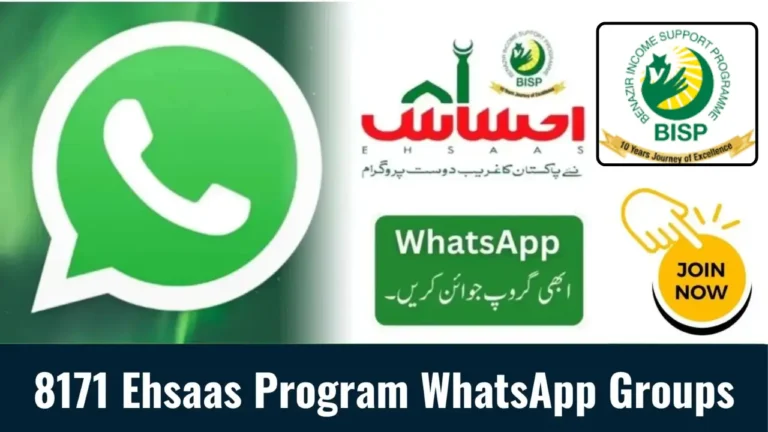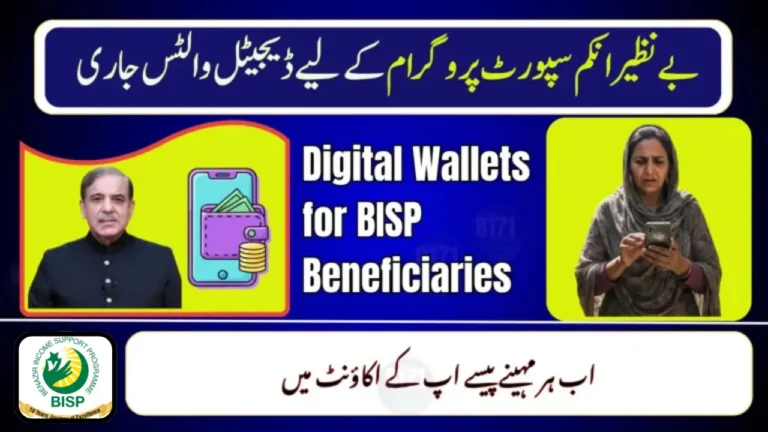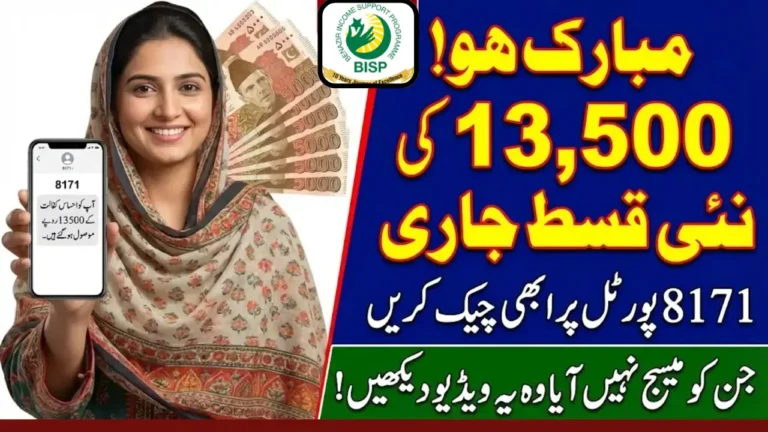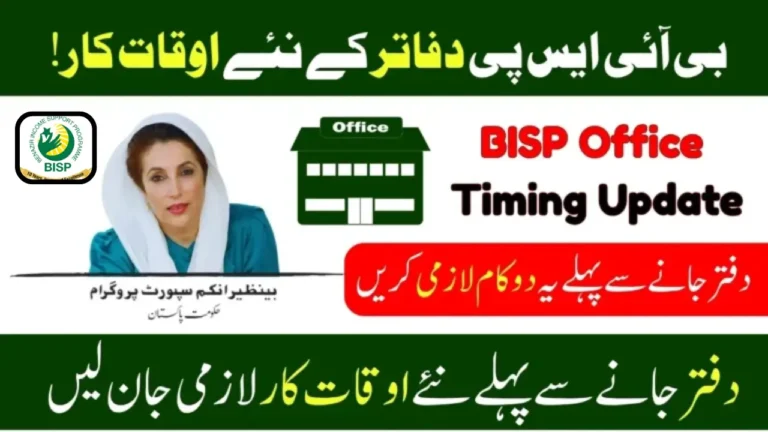Pakistan’s BISP 2025 Women and Children Support Program: Strengthening Families
The Women and Children Support Program under Pakistan’s Benazir Income Support Program (BISP) 2025 is designed to provide financial assistance to vulnerable households, especially women and children. By offering quarterly cash support of up to Rs 5000, the program aims to help families meet essential needs such as education, healthcare, and nutrition while promoting long-term stability and empowerment.
Targeting women as primary caregivers ensures that financial aid directly impacts household decisions, benefiting both children and families as a whole. With consistent support, households can better manage expenses, improve child development outcomes, and foster a stronger sense of security.
BISP Social Protection Wallet 2025
Eligibility Criteria for Women and Children Support Program
To benefit from the Women and Children Support Program, applicants must meet certain criteria. Women should be heads of households or primary caregivers, and children must fall below a specified age limit. Families are also required to demonstrate financial need through income documentation and proof of residency. Clear eligibility guidelines help ensure that the program reaches those most in need.
Details of Quarterly Financial Assistance
Under the Women and Children Support Program, eligible families receive up to Rs 5000 every quarter. Regular disbursement allows families to budget effectively and cover ongoing household costs such as school fees, medical expenses, and nutrition. The quarterly payment structure helps reduce financial stress and encourages long-term planning.
Canada Immigration Plan 2026–2028
How to Apply for the Program
Applications can be submitted online through BISP’s official portal or at local offices. Required documentation includes identification, proof of residence, and income verification. The application process is designed to be inclusive, ensuring that families in remote or underserved areas can access support without difficulty.
Empowering Women Through Financial Aid
Direct financial assistance through the program empowers women by giving them greater control over household finances. Women can prioritize spending on children’s education, healthcare, and nutrition, improving overall family well-being. Economic empowerment also fosters social change, strengthening women’s roles within households and communities.
Enhancing Child Development
Children benefit significantly from the Women and Children Support Program through improved access to healthcare, nutrition, and education. Consistent financial aid allows families to invest in their children’s future, helping break cycles of poverty and providing better opportunities for growth and development.
Regional Allocation of Benefits
BISP ensures equitable distribution of aid across all provinces and territories. The table below shows the standardized quarterly support provided under the program:
BISP 8171 Payments Released via Habib
| Region | Quarterly Aid (Rs) |
|---|---|
| Punjab | 5000 |
| Sindh | 5000 |
| Khyber Pakhtunkhwa | 5000 |
| Balochistan | 5000 |
| Islamabad | 5000 |
Uniform allocation ensures fairness and simplifies program administration across the country.
Monitoring and Accountability
The program maintains transparency through strict monitoring and secure payment systems. Beneficiary data is regularly updated to prevent duplication or misuse, while feedback channels allow recipients to report issues. These measures ensure the Women and Children Support Program functions efficiently and reliably.
BISP 8171 Registration Process Explained –
Challenges and Opportunities
Challenges such as limited awareness in remote areas and occasional delays in disbursement exist. Addressing these issues through community outreach, mobile payment solutions, and collaboration with local organizations can increase program coverage and effectiveness.
Conclusion
The BISP 2025 Women and Children Support Program is more than just financial aid; it is an initiative to empower women and improve the lives of children across Pakistan. By providing quarterly payments of up to Rs 5000, the program strengthens household decision-making, supports child development, and promotes long-term social stability. With ongoing monitoring, effective outreach, and strategic improvements, this program has the potential to transform vulnerable families and set a model for successful social welfare programs in the country.






